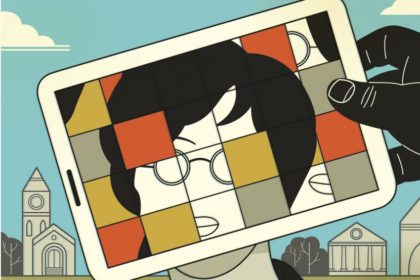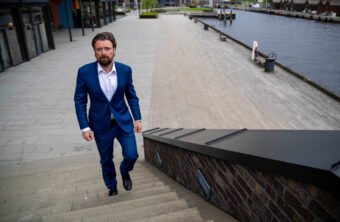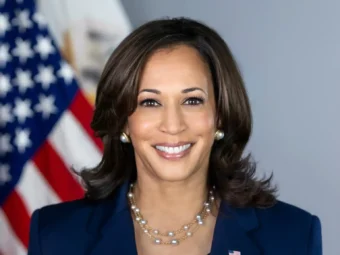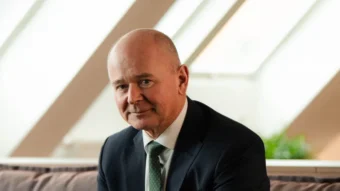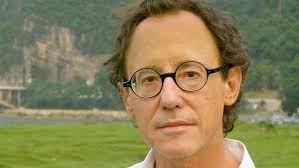
An obsession with identity has made students less likely to engage with a world beyond themselves,writes Mark Lilla in the Cronicle of Higher Education. Donald Trump is president of the United States. This momentous event has turned our campuses upside down. The day after his victory some professors held teach-ins, some students asked to be excused from class, and now many have gotten engaged and have been joining marches and attending raucous town-hall meetings. This warms the heart of an impassioned if centrist liberal like myself, writes Lilla..
Look in the Mirror
But something more needs to happen, and soon. All of us liberals involved in higher education need to take a long look in the mirror and ask ourselves how we contributed to putting the country in this situation. We need to accept our share of responsibility. Anyone involved in Republican politics will tell you that our campus follies, magnified by Fox News, mobilize their base like few things do. But our responsibility extends beyond feeding the right-wing media by tolerating attempts to control speech, limit debate, stigmatize and bully conservatives, as well as encouraging a culture of complaint that strikes people outside our privileged circles as comically trivial. We have distorted the liberal message to such a degree that it has become unrecognizable.
Fresch Political Vision
After Ronald Reagan’s election in 1980, American liberals faced the challenge of developing a fresh and truly political vision of the country’s shared destiny, adapted to the new realities of American society and chastened by the failures of old approaches. And this they failed to do. Instead they threw themselves into the movement politics of identity, losing a sense of what we share as citizens and what binds us as a nation. An image for Roosevelt liberalism and the unions that supported it was that of two hands shaking. A recurring image of identity liberalism is that of a prism refracting a single beam of light into its constituent colors, producing a rainbow. This says it all.
Nazis burned books
The politics of identity is nothing new, certainly on the American right. And it is not dead, as the recent events in Charlottesville remind us. The white nationalist march that set off the conflict, and then led to one protester’s death, was not only directed against minorities. It was also directed at the university and everything it stands for. In May 1933 Nazi students marched at night into the courtyard of the University of Berlin and proceeded to burn “decadent” books in the library. White nationalist organizers were “quoting” this precedent when they flooded Thomas Jefferson’s campus looking for blood. This was fascist identitarianism, something liberals and progressives have always battled in the name of human equality and universal justice.
What was astonishing during the Reagan years, though, was the development of an explicit left-wing identity politics that became the de facto creed of two generations of liberal politicians, professors, school teachers, journalists, movement activists, and officials of the Democratic Party. This has been disastrous for liberalism’s prospects in our country, especially in the face of an increasingly radicalized right.
Marxism Died Out
This new attitude had a profound impact on American universities. Marxism, with its concern for the fate of workers of the world, all of them, gradually lost its allure. The study of identity groups now seemed the most urgent scholarly and political task, and soon there was an extraordinary proliferation of departments, research centers, and professorial chairs devoted to it.
This has had many good effects. It has encouraged academic disciplines to widen the scope of their investigations to incorporate the experiences of large groups that had been somewhat invisible, like women and African-Americans. But it also has encouraged a single-minded fascination with group differences and the social margins, so much so that students have come away with a distorted picture of history and of their country in the present — a significant handicap at a time when American liberals need to learn more, not less, about the vast middle of the country.
Conservatives are right: Our colleges, from bottom to top, are mainly run by liberals, and teaching has a liberal tilt. But they are wrong to infer that students are therefore being turned into an effective left-wing political force. The liberal pedagogy of our time, focused as it is on identity, is actually a depoliticizing force. It has made our children more tolerant of others than certainly my generation was, which is a very good thing. But by undermining the universal democratic we on which solidarity can be built, duty instilled, and action inspired, it is unmaking rather than making citizens. In the end this approach just strengthens all the atomizing forces that dominate our age.
It’s strange: liberal academics idealize the ‘60s generation, as their weary students know. But I’ve never heard any of my colleagues ask an obvious question: What was the connection between that generation’s activism and what they learned about our country in school and in college? After all, if professors would like to see their own students follow in the footsteps of the left’s Greatest Generation, you would think they would try to reproduce the pedagogy of that period. But they don’t. Quite the contrary. The irony is that the supposedly bland, conventional colleges of the 1950s and early 1960s incubated what was perhaps the most radical generation of American citizens since the country’s founding. Young people who were eager to engage in «the less exotic but more lasting struggles for justice» for everyone in the great out there beyond the campus gates.
Neither Elizabeth Cady Stanton (who studied Greek) nor Martin Luther King Jr. (who studied Christian theology) nor Angela Davis (who studied Western philosophy) received an identity-based education. You can still find such people teaching in our universities and some are my friends. Most remain to the left of me but we enjoy disagreeing and respect arguments based on evidence. I still think they are unrealistic; they think I don’t see that dreaming is sometimes the most realistic thing one can do. (The older I get the more I think they have a point.) But we shake our heads in unison when we discuss what passes for political activity on campus.
Like Peopøe Unlike Yourself
It would not be such a terrible thing to raise another generation of citizens like them. The old model, with a few tweaks, is worth following: passion and commitment, but also knowledge and argument. Curiosity about the world outside your own head and about people unlike yourself. Care for this country and its citizens, all of them, and a willingness to sacrifice for them. And the ambition to imagine a common future for all of us.Any professor who teaches these things is engaged in the most important political work — that of building effective, and not just right-thinking, democratic citizens. Only when we have such citizens can we hope that they will become liberal ones. And only when we have liberal ones can we hope to put the country on a better path. Mark Lilla is a professor of humanities at Columbia University, His new book is The Once and Future Liberal: After Identity Politics (Harper), from which this essay is adapted.
